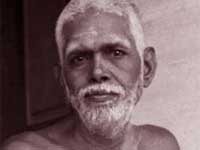Just In
- 1 hr ago

- 1 hr ago

- 5 hrs ago

- 11 hrs ago

Don't Miss
- Movies
 Chief Detective 1958 Episode 2 OTT Release Date, Time, Platform: When & Where To Watch? What To Expect? DEETS
Chief Detective 1958 Episode 2 OTT Release Date, Time, Platform: When & Where To Watch? What To Expect? DEETS - Sports
 IPL 2024: LSG vs CSK Award Winners, Man of The Match, Post-Match Presentation, Scorecard & Records
IPL 2024: LSG vs CSK Award Winners, Man of The Match, Post-Match Presentation, Scorecard & Records - News
 Chinese President Xi Jinping Orders Biggest Military Reorganisation Since 2015
Chinese President Xi Jinping Orders Biggest Military Reorganisation Since 2015 - Education
 Exam Pressure Does Not Exist; Studying Punctually is Crucial; Says Aditi, the PSEB 2024 Topper
Exam Pressure Does Not Exist; Studying Punctually is Crucial; Says Aditi, the PSEB 2024 Topper - Finance
 Reliance, ONGC, Tata, Adanis: Energy Stocks Didn't Get The Memo Of Bears, Up 12% In 30-Days; 10 Stocks To BUY
Reliance, ONGC, Tata, Adanis: Energy Stocks Didn't Get The Memo Of Bears, Up 12% In 30-Days; 10 Stocks To BUY - Automobiles
 Suzuki Swift Hatchback Scores 4 Star Safety Rating At JNCAP – ADAS, New Engine & More
Suzuki Swift Hatchback Scores 4 Star Safety Rating At JNCAP – ADAS, New Engine & More - Technology
 Dell Introduces AI-Powered Laptops and Mobile Workstations for Enterprises in India
Dell Introduces AI-Powered Laptops and Mobile Workstations for Enterprises in India - Travel
 Journey From Delhi To Ooty: Top Transport Options And Attractions
Journey From Delhi To Ooty: Top Transport Options And Attractions
The Battle Between The Past And The Present

In contrast the present is the moment of experience when it is happening, it not when it is recollected after it is over. Here too total action in the present is possible only when the mind is delinked from the past. Living in the present therefore is a dimension that is outside the experience of most seekers of the truth.
The vast majority of people seem to be unconcerned with a way of life which is not bound to the past. They first make a division between subject and the object and locate happiness in the objects. There is no knowledge of the subject 'I' and no concern about this ignorance. The true nature of the subject is never questioned. Many move along the thought-world propelled by the tendencies, desire and fear ridden, anxious, for many a fondly cherished hope may well be denied. Unaware of the spring of happiness within they are content to lead a superficial life hugging their trivialities.
However a seeker of truth recognizes that knowing everything about the world, objective knowledge, without knowing the one to whom all knowledge relates is futile. One must be ready to dive deep to understand the true nature of the subject. Ramana has made it clear that the only way to know the true nature of the subject would be to search for the source of the mind.
To track the source of the mind, one has to hang on to the 'I' or cling to it by single-minded attention to the core of the mind. One might say that this is 'stage 1', success of which is marked by the mind being passive and undistracted. This mind which is quiet and at the same time alert needs to be kept active in pursuit of itself by further questioning about the source of this 'I'. Then a natural merging of the 'I', the essential nature of which is consciousness, takes place. The mind then merges in the Self, in the sense that the divided mind with its external pulls would be replaced by a pure and silent mind.
Then a different kind of experience comes about; an experience without the experiencer, just the pure mind's awareness of its own happiness. Natural, spontaneous, unbound bliss fills one's being. This experience may be termed as Self-experience for it is non-dual and inherent.
About
the
author
Sri A.R.Natarajan has had the opportunity of a long association of over 50 years with the Ramanashram. He was the editor of "Mountain Path" for two years. He was the secretary of Ramana Kendra, New Delhi for ten years. He founded the Ramana Maharshi centre for learning, a non profit institution. He has authored more than thirty six books and eleven pocket books on the life and teachings of Bhagavan Ramana.
Chat With The Devotees Of Bhagwan Ramana Maharishi
-
 yoga spiritualityDid You Know That One Shloka Which Carries The Essence Of The Bhagavad Gita?
yoga spiritualityDid You Know That One Shloka Which Carries The Essence Of The Bhagavad Gita? -
 yoga spiritualityAct But Don't React! The Secret Principle For A Happy And A Calm Life
yoga spiritualityAct But Don't React! The Secret Principle For A Happy And A Calm Life -
 yoga spiritualityRamana Maharshi On Meditation: Meditate Or Drive Away The Mosquitoes?
yoga spiritualityRamana Maharshi On Meditation: Meditate Or Drive Away The Mosquitoes? -
 yoga spiritualityWhat Is Meditation? Ramana Maharshi Decodes It With Dosa Eating!
yoga spiritualityWhat Is Meditation? Ramana Maharshi Decodes It With Dosa Eating! -
 ramana maharshiSolving Problems-Self Enquiry, The Solution To All Problems
ramana maharshiSolving Problems-Self Enquiry, The Solution To All Problems -
 ramana maharshiSolving Problems-For Whom Is The Problem?
ramana maharshiSolving Problems-For Whom Is The Problem? -
 ramana maharshiSolving Problems : Where Is Happiness?
ramana maharshiSolving Problems : Where Is Happiness? -
 ramana maharshiSolving Problems The Ramana Way : 'Where Is The Problem?'
ramana maharshiSolving Problems The Ramana Way : 'Where Is The Problem?' -
 ramana maharshiSolving Problems The Ramana Way: What Is A Problem?
ramana maharshiSolving Problems The Ramana Way: What Is A Problem? -
 ramana maharshiRamana Maharshi's Definition Of Atheist
ramana maharshiRamana Maharshi's Definition Of Atheist -
 ramana maharshiRamana Maharshi's Biography-His Teachings
ramana maharshiRamana Maharshi's Biography-His Teachings -
 ramana maharshiRamana Maharshi's Biography-Spiritual Sayings
ramana maharshiRamana Maharshi's Biography-Spiritual Sayings


 Click it and Unblock the Notifications
Click it and Unblock the Notifications




